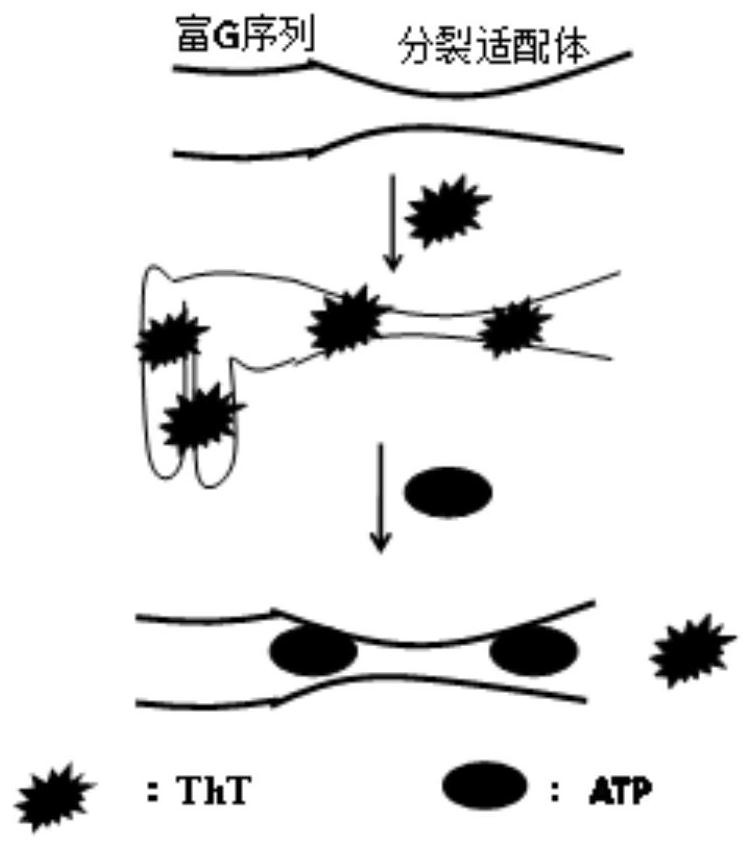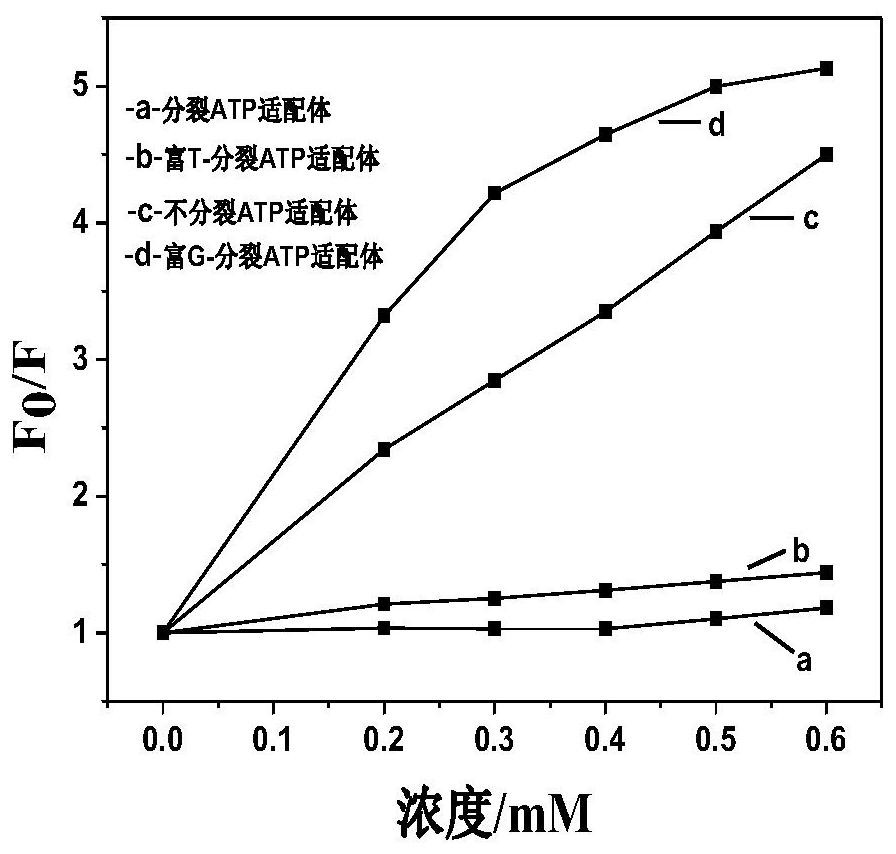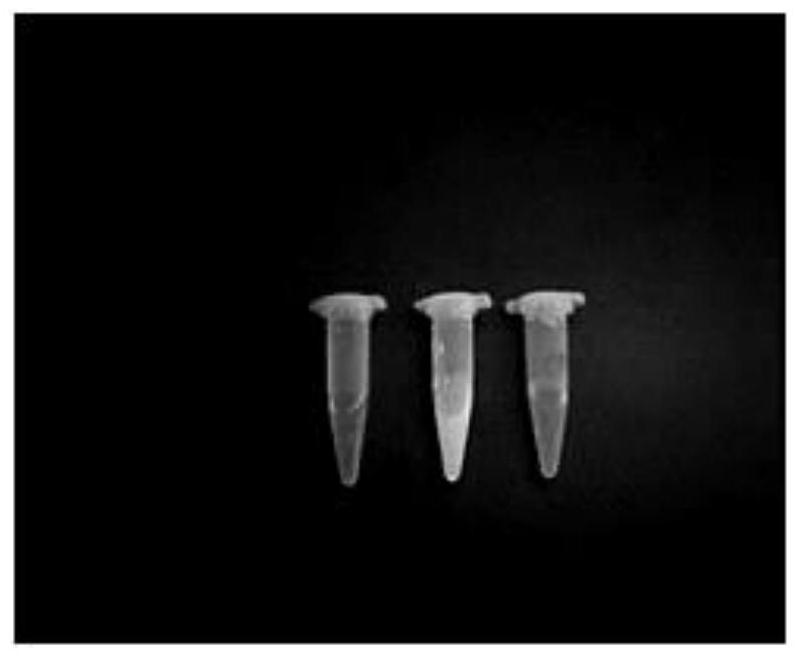Split aptamer sensors for ATP detection and their applications
An aptamer sensor and aptamer technology, applied in the field of biochemistry, can solve the problems of increased ThT fluorescence, weak binding, and poor fluorescence enhancement effect, and achieve the effects of significant signal amplification, wide linear range, and wide dynamic linear range.
- Summary
- Abstract
- Description
- Claims
- Application Information
AI Technical Summary
Problems solved by technology
Method used
Image
Examples
Embodiment 1
[0039] 1 Experimental part
[0040] 1.1 Instruments and reagents
[0041] Hitachi F-7000 fluorescence spectrophotometer; Chirascan circular dichroism spectrometer; ultrapure water (Mill-Q pure water instrument, conductivity > 18MΩ.cm); KS-300D ultrasonic cleaner (Ningbo Kesheng Instrument Factory); Magnetic PHS-3C acidity meter; McAry (SQ) Eq-001 centrifuge.
[0042] The DNA sequence used in the present invention was purchased from Shanghai Sangon Bioengineering Co., Ltd., see the sequence listing. Dissolve DNA solids with ultrapure water and prepare a stock solution with a concentration of 100 μM. Thioflavin T (ThT) was purchased from Sigma-Aldrich Company, dissolved in ultrapure water, the concentration of the mother solution was 1 mM, and stored at 4°C in the dark. Magnesium chloride and potassium chloride are commercially available. The buffer solution used in the experiment was 10mM Tris-HCl (30mM MgCl 2 ,pH=6.0). Human serum used for sample determination was obtain...
PUM
 Login to View More
Login to View More Abstract
Description
Claims
Application Information
 Login to View More
Login to View More - R&D
- Intellectual Property
- Life Sciences
- Materials
- Tech Scout
- Unparalleled Data Quality
- Higher Quality Content
- 60% Fewer Hallucinations
Browse by: Latest US Patents, China's latest patents, Technical Efficacy Thesaurus, Application Domain, Technology Topic, Popular Technical Reports.
© 2025 PatSnap. All rights reserved.Legal|Privacy policy|Modern Slavery Act Transparency Statement|Sitemap|About US| Contact US: help@patsnap.com



